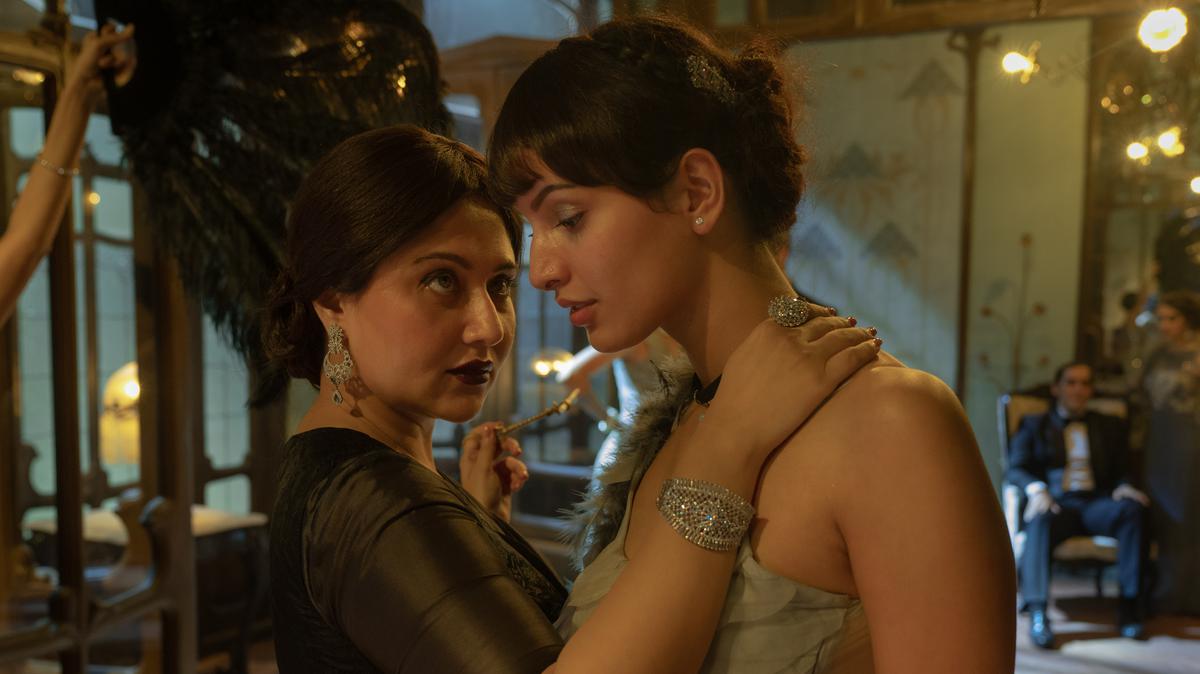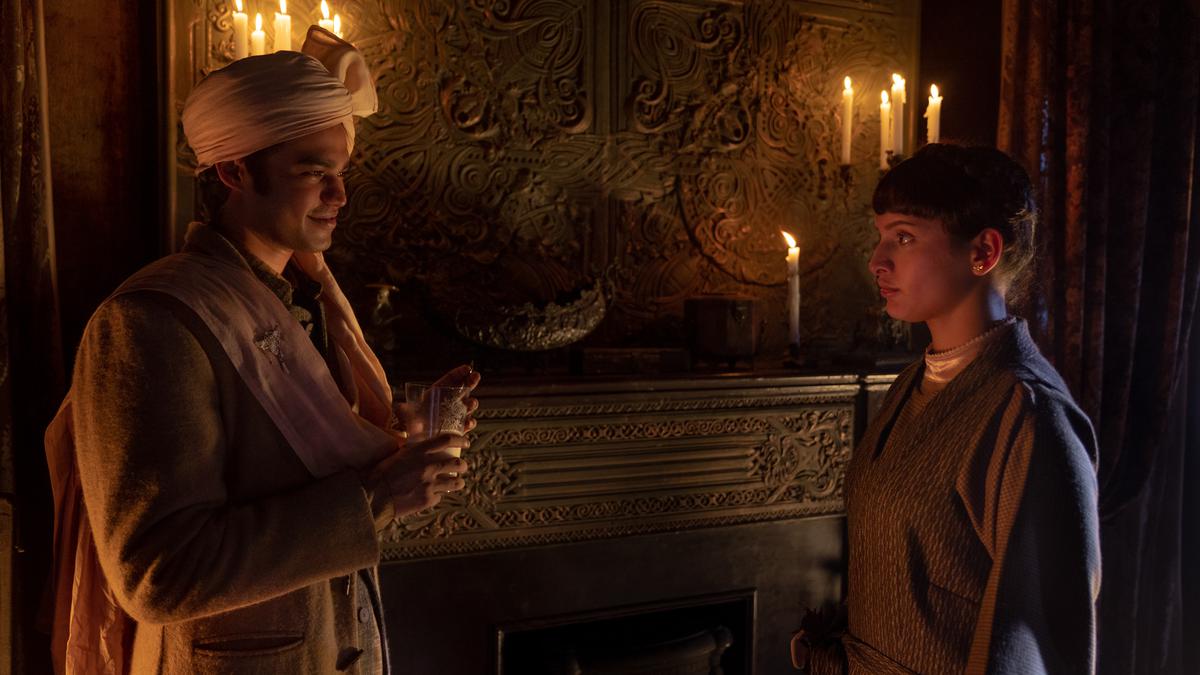‘Qala’ director Anvitaa Dutt on telling a mother-daughter story in the upcoming film
Anvitaa Dutt has donned several hats during her 17-year career in Bollywood. She has written dialogues, lyrics, and screenplays for films like Queen and Philauri, but her more recent projects are where she has found her calling. “I realised everything that I have ever done was for this moment,” she says about her directorial ventures Bulbbul, and the upcoming Qala.
On her first set as a director, when she heard the words “camera rolling,” Dutt says she felt a ‘click’ go off inside her brain. However, this wasn’t the first time she experienced that; she felt it in 2013 when the story of Qala came to her. Revolving around a playback singer in the 1930s, Qala has been in the making for at least nine years, and as Dutt reveals, its inception took place in the infamous slow-moving traffic of Mumbai.
“I’d met Vishal Dadlani for a coffee and we were actually talking about everything, from the urban legends that exist in the music industry to how female singers can feel safe and received in certain studios.” Between Bandra and Andheri, the story of a mother and daughter, and the idea of a musician in the world of the 1930s and 1940s took shape. “The conversation happened to be about music, and pun unintended, uska sur baith gaya, (the tune seemed to find its place) and it just started singing,” says Anvitaa.
Though she wrote the first draft that year itself, the root of this story about music retained the mother-daughter relationship. Why this specific dynamic? Anvitaa says that there aren’t enough stories about such equations. “More stories should talk about what we feel, what our inner landscape is; it’s so fraught with cracks, and we are always navigating a very scary, emotional minefield all the time.”

A still from ‘Qala’
| Photo Credit:
Hitesh Mulani/Netflix
For Qala’s eponymous protagonist, played by Tripti Dimri, the relationship she shares with her mother ends up dictating the “emotional minefield” that she traverses. “I think all of us have experienced that feeling, at some point in time, of either not being enough or needing validation from outside of ourselves,” she says. While researching this film, Anvitaa also had several conversations with psychologists and psychoanalysts, according to whom, this feeling, “especially for girls, is seeded in our relationship with our primary caregiver, our mother.”
The filmmaker wants to go beyond this simple binary of pitting daughters against their mothers, who she says are not the villains, but “are themselves victims of their own upbringing and their own pathology. It is a cycle and they just pass it on, and at a DNA level, we pass it on.”
‘A jagged story cradled in music’
Qala’s themes and emotions are presented to the audience through its impactful music that fills every available space. Composer Amit Trivedi, who was one of the few people who knew about the film since it was just an idea, has created a medley of some of Bollywood’s most notable songwriters for the film.
With Trivedi as the composer, Anvitaa handpicked the lyricists. Penning one song herself, the remaining four songs are credited to Amitabh Bhattacharya, Kausar Munir, Swanand Kirkire, and Varun Grover. Anvitaa regards this moment as a feather in her cap. “They never do just one song in an album; they are established lyricists who do solo albums. But for me, they all did one song each,” she says and explains that each song was chosen to enable the lyricist to shine in their craft.
The songs needed to reflect Qala’s inner landscape. “So we used the music not just to cradle this slightly jagged-edged story, but also as part of the storytelling.” This process of storytelling through music began in workshop sessions led by Trivedi in Goa. The lyricists and Trivedi lived together, jammed and came up with the songs. For Tripti Dimri, these sessions served as an immersive experience that would go on to aid in her role as a playback singer.
“It was also for Tripti to see how music is done; to see what a music-sitting looks like, to know the relationship of the lyricist and the composer, the role that the lyricist plays with the singer, and so on.”

A still from ‘Qala’
| Photo Credit:
Hitesh Mulani/Netflix
Anvitaa, who has worked with Tripti before in Bulbbul, credits the actor with preparing a lot for her character beforehand. Playing Qala meant that Tripti, who can sing, had to take additional lessons from a singing coach given to her by Trivedi. “Trivedi would sing the final song and then make Tripti sing it; he would teach her where to breathe and how to breathe. So, she is actually singing in her scenes and belting it out.”
For Babil Khan, who will be facing the camera for the first time in Qala as Jagan, Anvitaa held workshops over Zoom. “I used to give him any song, and his workshop was to sing it to me. Then, we would talk about how it made him feel, what the character is about, and then to sing it like Jagan, in his own voice. He is also an amazing singer, which helped.”
Finally, it was imperative that Tripti and Babil’s performance be complemented by voices that matched them. “We found the perfect voices for Qala (Sireesha Bhagavatula), which is a young vulnerable voice, and Jagan (Shahid Mallya). Shahid sounds like he has a connection with the divine, which is what Jagan’s character needed to have,” she says.
Another way that the world of Qala is brought to life is through its visuals, on which Anvitaa has once again worked with her Bulbbul collaborators Siddharth Diwan (Cinematographer) and Meenal Agarwal (Production Designer). Dutt, who admits to being more of a reader than a watcher, derives her inspiration from the world of literature and art. Switching between Qala’s childhood home in the mountains and her adult life in Kolkata, the set designs and colour palette are influenced by the Dutch Golden Age and the Art Nouveau style respectively. These styles, Dutt says, are also reflected in how the scenes are lit. “Whether it is lighting or production design, or costume, it is there to serve what Qala is feeling.”
‘Will constantly voice women’s stories’
Following Bulbbul and Qala, both of which feature a female lead protagonist, Anvitaa aims to continue telling women’s stories. “However fantastical I make them, they will always be real, and they will always be women. Those are the stories that talk to me, those are the stories that belong to me, and I will constantly voice them.”
Qala will be available for streaming on Netflix from December 1
For all the latest Entertainment News Click Here
For the latest news and updates, follow us on Google News.
